#37: Five for Them, One for Me, with Ivy Pochoda
Ivy’s latest, ECSTASY, is out tomorrow.
Perhaps it’s being a native of Brooklyn that lends Ivy Pochoda her particular insight into the underbelly of Los Angeles—the way English-born Raymond Chandler viewed the city not as an outsider looking in but rather as someone looking underneath Los Angeles, in his Philip Marlowe novels. Or how Missouri-native Jordan Harper incisively dissects the glitz to show the sacrifices made for the city’s dark magic in his novel EVERYBODY KNOWS.
Beginning with her third novel, the Altmanesque WONDER VALLEY, and through the modern-day Western SING HER DOWN, Ivy has chronicled a singularly powerful vision of Los Angeles—not about the lives of the rich and famous, but rather a world of ex-cons, communes, dancers, fry cooks, cops. And most of all, it is a world populated by strong, fierce women, pushing back against generations of patriarchal abuse and reclaiming their power—often through unflinching explosions of violence.
Which is why Ivy’s newest book, ECSTASY, is both a departure and also in tune with her earlier work. A feminist reimagining of Euripides’ The Bacchae set at a luxurious resort in Naxos, Greece, ECSTASY is the story of Lena, a widow who’s gone from living under the thumb of her businessman husband to under the thumb of her controlling son. As Lena begins to rediscover her once-lost spirit, she becomes entranced by a mysterious group of women living on the beach in front of the resort. Tension builds between Lena and her son as her draw to the free-spirited women grows, and Ivy guides the story toward a bloody and surprising climax with spare yet poetic language and vivid imagery.
A graduate of Harvard in Classical Greek and English and American Literature, Ivy is currently a professor of creative writing at the University of California Riverside-Palm Desert low-residency MFA program. For many years, Ivy has led a creative writing workshop in Skid Row, Los Angeles where she helped found Skid Row Zine. SING HER DOWN won the L.A. Time Book Prize, and her novel THESE WOMEN—my vote for the best serial killer novel of the 21st century—was nominated for Edgar.
She’s also the latest Five for Them, One for Me.
Let’s go.
FIVE FOR THEM
1. What was the origin point for your latest novel, ECSTASY?
Well, it was Euripides’s drama The Bacchae, which I translated it is entirety from ancient Greek my senior year in high school. It’s an important story of female oppression—just let the women dance and party, for god’s sake—with a climatic ending right out of a horror movie.
2. The Bacchae has been the subject of feminist interpretation over time, particularly with its challenge of gender roles and patriarchy. Were these factors that drew you to writing your own version in ECSTASY? Did other interpretations influence you as you were developing and writing the book?
Gosh, I haven’t actually read any other re-imaginings of the play! I’m sure they are out there. My only influence was the OG text. Euripides stops short of being feminist. His moral take away is the perils of hubris in the face of divinity—the partying women are just a catalyst. I shifted the focus to the women and foregrounded them.
3. You said that while promoting THESE WOMEN you “realized how gendered we treat violence.” Both ECSTASY and your previous novel, SING HER DOWN, vividly explore female rage and the capacity for violence. What brings you back to this theme, and how you handle the violence in your work?
I’m super into it! I firmly believe that women are as capable as men in all fields which naturally includes some unsavory ones such as violence. Violence doesn’t always require physical strength, just amoral conviction and sometimes cunning and calculate reaction. I’m not going to sit around and argue that women are as commonly violent as men, but I have no time for the argument that they don’t have the capability. I’m a happy person but I realize that throughout my life, I’ve made so many accommodations to the aspersions, critiques, and advances of men that it has angered me—and if that doesn’t come out in my books, well, then I don’t know what I would write.
4. Your books typically have many different POVs, whether it is the five sections of THESE WOMEN—each with a different POV character—or the multiple POVs of VISITATION STREET. Its use in ECSTASY is powerful, especially how it offers one character an extremely strong and surprising ending. What is the importance of POVs in your fiction?
Multiple POVs create a three-dimensional panorama of a story. A more honest view. They remove bias and allow the reader to come closer, especially if he or she identifies with one POV over another.
5. You’ve woven aspects of magical realism into your books since your debut, THE ART OF DISAPPEARING—such as the moving street mural in SING HER DOWN, and with ECSTASY, the DJ BaXXus. Talk about the role of magical realism plays in your work, especially in contrast to the harsh realism the books portray.
It's a tiny stamp that makes the work MINE—like, I didn’t make mistakes or get something factually wrong because this world is MY world, not yours or the real one. It’s a small elevation that lifts the story into a place where I can take ownership of it. And it somehow, at least in my mind, softens the harsh reality of the plot.
ONE FOR ME
Your BA from Harvard is in Classical Greek and English and American Literature. With this background and knowledge of Greek mythology, what’s your favorite Greek mythology movie adaptation?
BLACK ORPHEUS or KAOS.
WHAT WE’RE WATCHING
I’m a sucker for documentaries that explore films or film genre, be it a four-hour documentary on the NIGHTMARE ON ELM STREET movies, or the QUEER FOR FEAR series, about LGBTQ+ representation and influence on horror.
WE KILL FOR LOVE looks at the history of the erotic thriller, from its origins in film noir and movies like DOUBLE INDEMNITY and THE BIG HEAT, through the halcyon days of direct-to-video, the occasional big-screen hit, and its eventual disappearance from the marketplace. The focus is on DTV/Skinemax movies, with interviews of talent from both sides of the camera. It’s an entertaining trip through a genre that’s now mostly forgotten, and at 2 hours, 43 minutes, it’s somehow both too long (the lengthy discussions on FATAL ATTRACTION and BASIC INSTINCT feel tired and repetitive), and not long enough (the behind-the-scenes anecdotes are oftentimes priceless, and I’d have watched another hour’s worth). Still worth the time for most film buffs.
That’s all we’ve got for now. Thanks for coming. See you next time, and hey, let’s be careful out there.


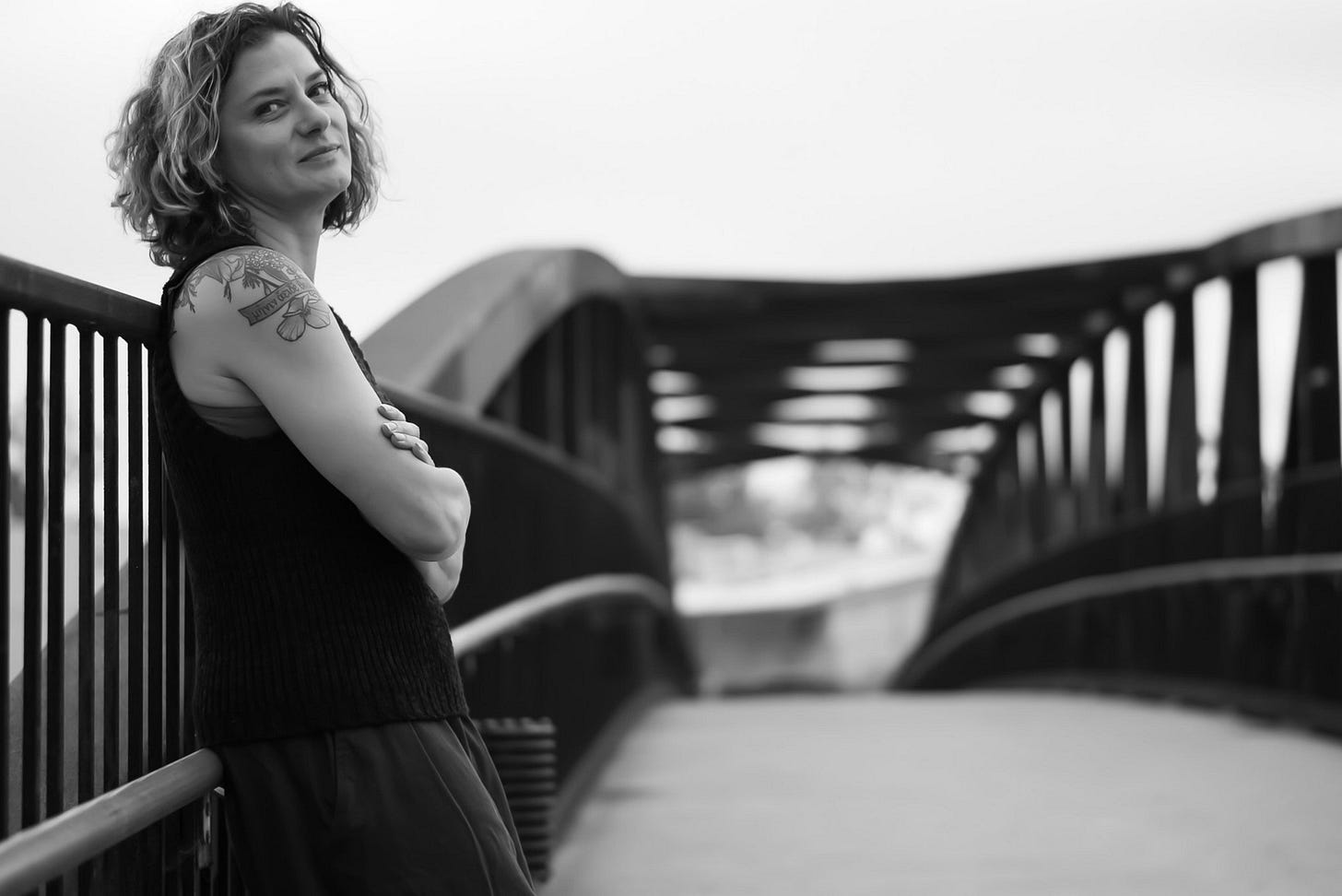
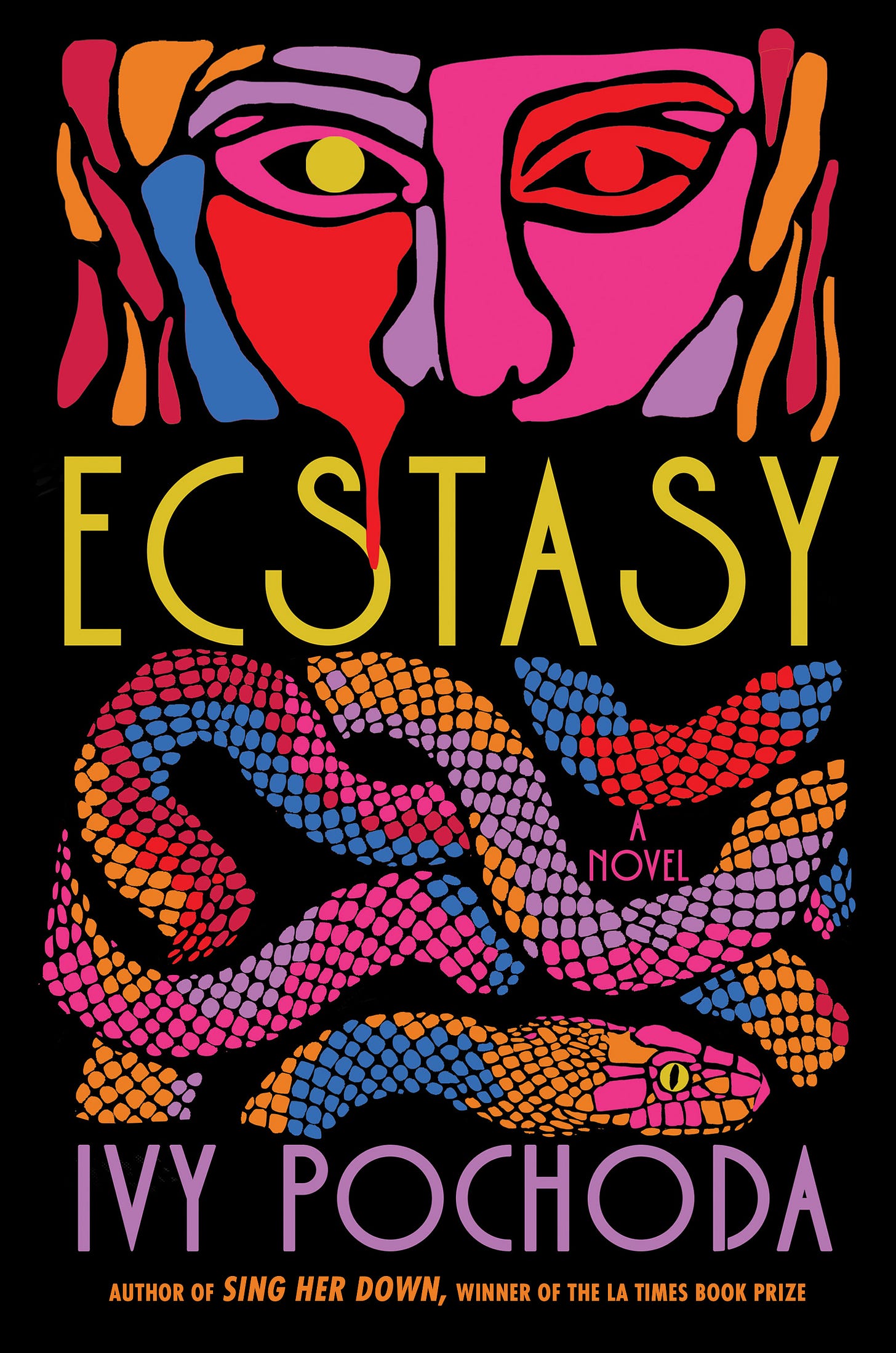
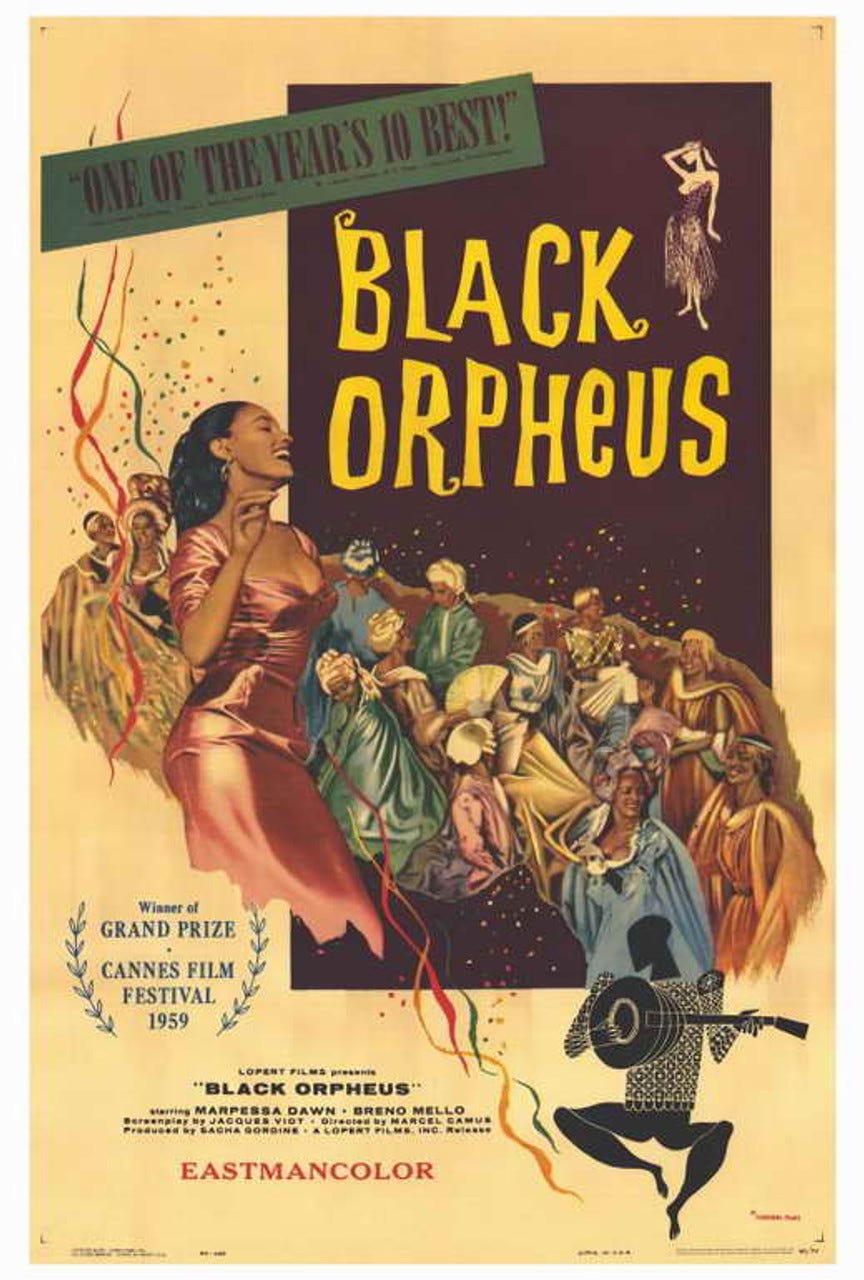
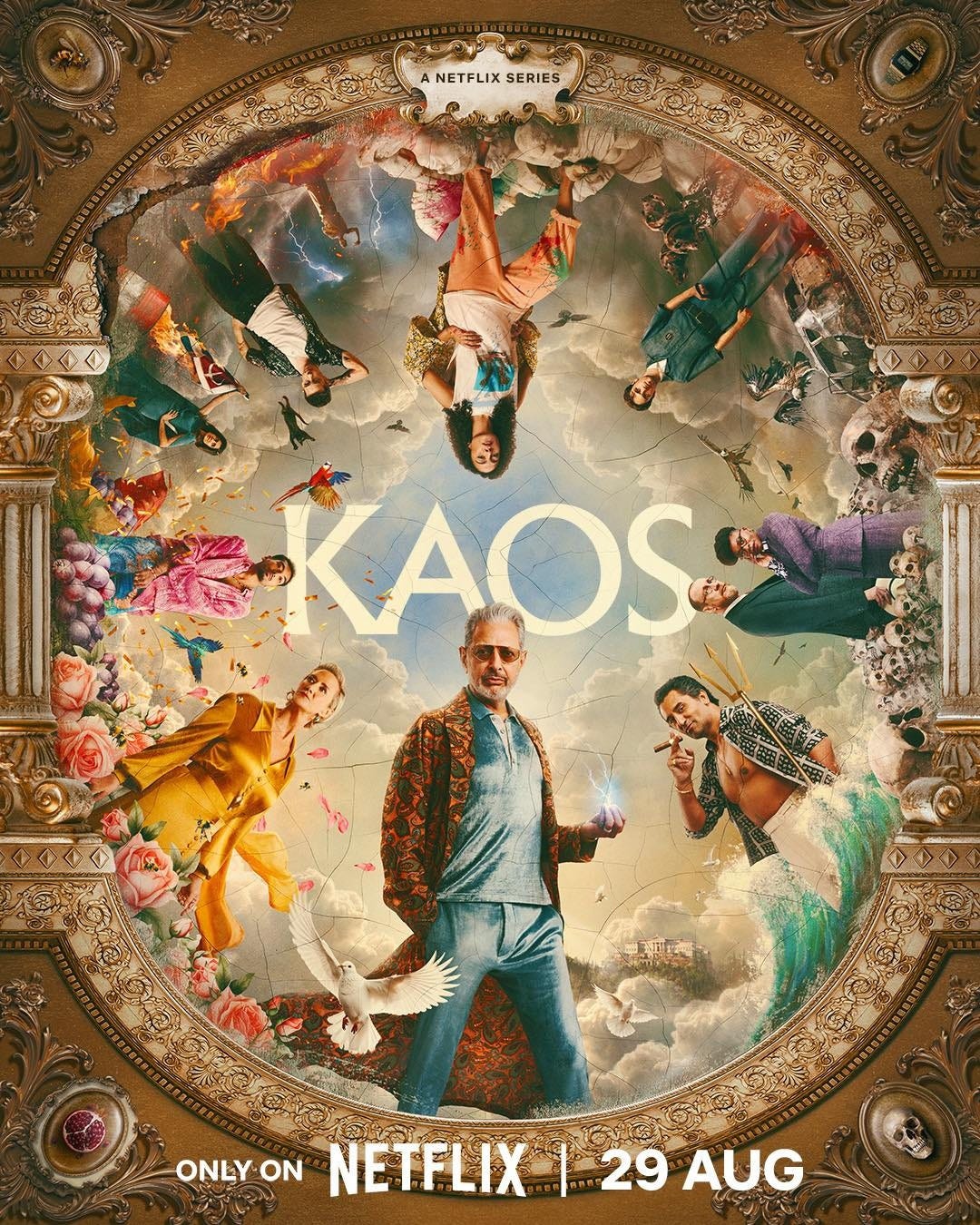
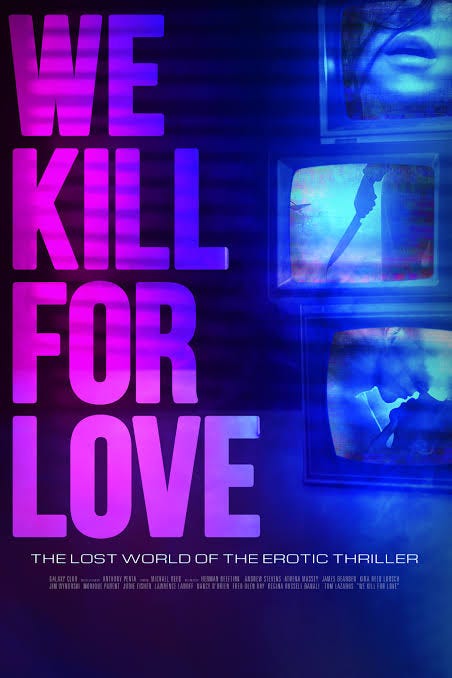
I enjoyed the Saturday webinar on newsletters, and I'm happy to be part of your well-attended family reunion of subscribers. Ivy is impressive. I'll have to pick up ECSTASY and look at her other work.